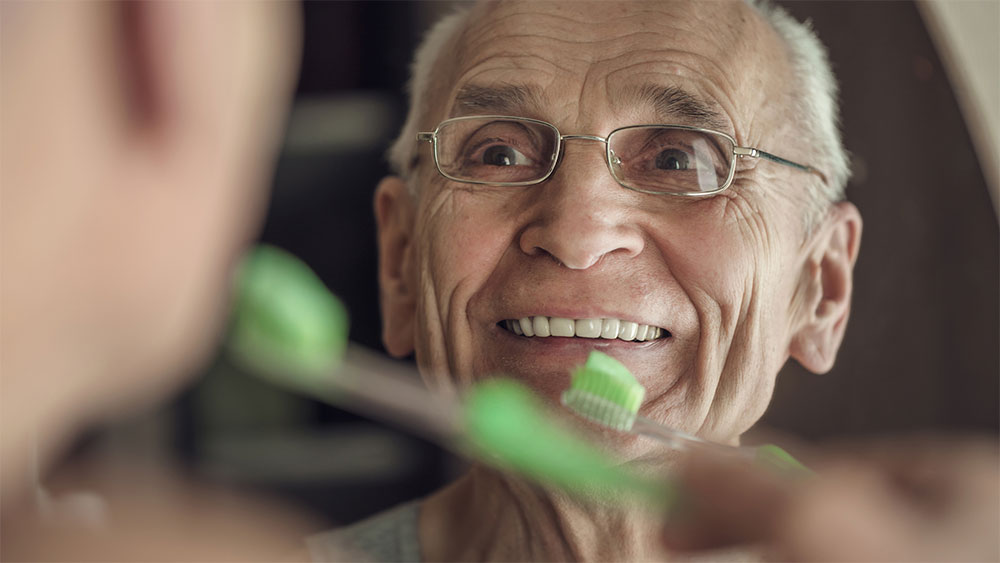
Maintaining dental care for seniors with dementia is important for long-term health.
It is one of the first things we do every morning, as well as one of the final things we do each night, typically on autopilot without giving it an extra thought. Yet it actually is a complex process made up of numerous steps, making this seemingly simple task quite a challenge for a senior with dementia.
Dental care for seniors is about more than just keeping gums and teeth healthy. Poor dental hygiene can bring about serious health problems, including cardiovascular disease, osteoporosis, stroke, respiratory disease, and more. It can also impact being able to eat and talk.
Dental Hygiene in Dementia
So how can you help ensure a senior with dementia maintains good oral hygiene? These strategies from At-Home Care Company, the experts in senior living in Waukee and nearby areas, will help:
- Modeling is a good strategy to help a loved one with dementia through a multistep process like brushing the teeth. Allow the person to perform each step of the process independently if at all possible: placing a tiny amount of toothpaste on the brush (baking soda toothpaste is preferred over fluoride, just in case the older adult swallows it), lifting the brush to the mouth, and moving the brush side to side and up and down over all surfaces of the teeth.
- For somebody who needs help, provide a toothbrush with toothpaste already applied, stand behind the senior, and place your hand on theirs, starting the motion of brushing for them.
- If holding the brush is difficult, there are longer-handled toothbrushes available, or, cut holes in a tennis ball and push the brush through, giving a senior loved one something more substantial to hold onto. A battery-powered toothbrush can be an excellent choice to try.
- Flossing is also an essential part of dental care. For independent flossing, try floss holders or other implements designed to make it less difficult and much more efficient. If you are flossing the senior’s teeth, again, standing behind the individual may be easiest.
- In the event that the senior has dentures, be sure to remove, brush, and rinse them daily. While the dentures are removed, a soft-bristled toothbrush should be used to gently clean the older adult’s gums and roof of the mouth.
Don’t Forget the Dentist
Whenever possible, locate a dentist who specializes in dementia dental treatments. An older adult with dementia should continue to receive regular dental exams, which include checking dentures to make sure of a correct fit and to rule out any complications with the teeth or gums. A senior loved one with dementia who is unable to communicate dental discomfort or pain may exhibit signs such as:
- Touching the cheek or jaw, or rubbing the affected region
- Rolling or nodding the head
- Resisting any hygiene in the vicinity of the area, including shaving or washing the face
- Sleeping difficulty
- Aggression, moaning, or yelling
- Unwillingness to putting dentures in
If any of these symptoms are noted, schedule an appointment with the dentist as soon as possible.
For more tips, and for skilled, compassionate help with oral care for an older adult with dementia, get in touch with At-Home Care Company, the experts in senior living in Waukee and nearby areas, at 515-292-2650.
